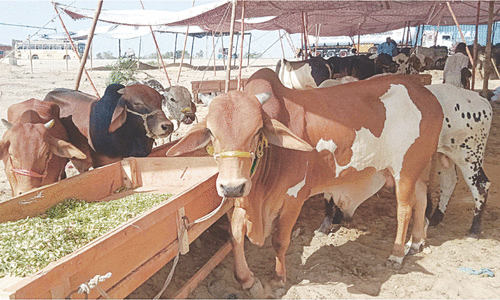Dr Abdullah Jan Abid is one of the eminent Pashto researchers and critics of the last two decades.
Being head of the department of Pakistani languages in Allama Iqbal Open University, Islamabad, he mostly writes on Pashto language and literature in Urdu language.
It not only facilitates Urdu readers, ambitious to acquaint with the structure and history of Pashto language and literature, but also helps the Pashto literature to become updated in accordance with the modern global scenario.
Up till now, so many books on various subjects by Dr Abid have been published and are available in market, in which every book is having its own importance and gravity.
However, one of his book “Pashto adab ki mukhtasar tareekh” ( A concise history of Pashto literature) is one of the most popular recent books on chronological subject of literary tastes and trends.
“Pashto adab: Maazi o haal” (Pashto literature: Past and present), is another literary deed of Dr Abdullah Jan Abid, wherein he has compiled two of the most important research articles of renowned man of letters and national politics late Ajmal Khattak.
Both of the articles, “Pashto adab” (Pashto literature) and “Pashto adab kay pachees saal”( 25 years of Pashto literature) included in this book, separately narrates the probable critical history of Pashto language and literature, which contributes a lot to the respective study of Pakhtuns and their letters.
Of these, “Pashto adab” had been published in a literary journal, “Sang-i- Meel”, Peshawar, in 1950, while “Pashto adab kay pachees saal” was published in renowned “Saaqi”, Karachi in 1955.
Both the research works were unavailable and the researchers had to resort to the photocopies of these articles.
So, Dr Abdullah Jan Abid deemed it pertinent to compile the separate research articles in one and the same book, which has recently been published by Pashto Academy of Quetta, Balochistan, in collaboration with Pakistan Academy of Letters, Islamabad.
Dr.Abid has not only compiled the said articles but he has also written a compact and comprehensive preface on the life and works of Ajmal Khattak as well as he has critically discussed the contents and different aspects of the given articles in his forewords.
Most importantly, Dr.Abid has updated the said articles by writing necessary footnotes, wherever needed to the ingredients contained therein.
Dr Abid has proved his vast and multi dimensional study on Pashto language and literature, because the footnotes given by him, is another concise source of knowledge, added to the book.
Dr Arshad Mehmood Nashad has truly put that Dr Abid had treated the research articles with labour and zeal by adding his notes to them.
The status and value of these articles had been made more elevated and updated, he said.
The importance of the book for the compilation of a critical history of Pashto literature can never be looked over while it also introduces Pashto literature to the Urdu readers, with a scholarly manner.
The literary circles have acclaimed and welcomed this great effort of Dr Abid.
Published in Dawn, October 26th, 2014











































Dear visitor, the comments section is undergoing an overhaul and will return soon.